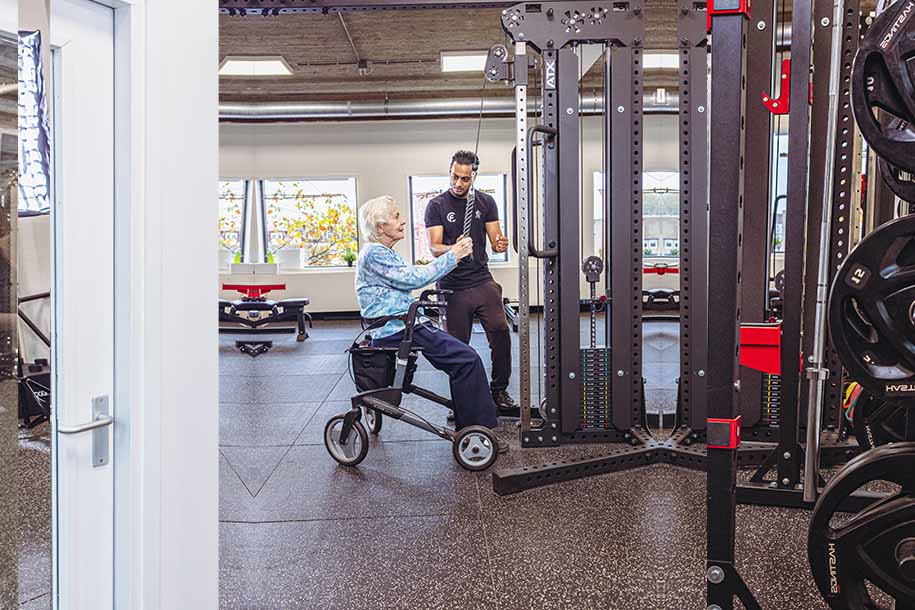Fitness is often associated with staying young and fit, but it is actually crucial to stay active as you get older. Regular fitness training has enormous benefits, both physically and mentally. It not only helps you stay fit for longer, but also improves your overall quality of life.
Improving muscle strength and mobility
As we age, we gradually lose muscle strength and flexibility. This process can contribute to a decrease in balance and coordination, which increases the risk of falling. By regularly doing strength training, older people can maintain and even increase their muscle mass. This helps to make daily activities, such as climbing stairs and carrying groceries, easier and safer. Strength training also contributes to the flexibility and mobility of joints, which reduces the risk of injuries and pain.
Better for healthy bones and joints
Osteoporosis and arthritis are common problems in older adults. Regular exercise, especially weight-bearing exercises such as walking, jogging, and strength training, promotes bone density and helps prevent bone loss. Strong bones and healthy joints are essential for mobility and independence, especially in old age. In addition, strong muscles around the joints provide extra support, which can reduce pain.
Healthy heart and body weight
Fitness also plays an important role in maintaining a healthy heart and weight. Cardiovascular exercises such as walking, cycling and swimming help keep your heart healthy by improving blood circulation and lowering cholesterol levels. In addition, these activities help boost your metabolism, which is crucial for maintaining a healthy weight. A healthy weight reduces your risk of conditions such as type 2 diabetes and high blood pressure, which tend to become more common as we age.
Better mental health
Exercise also has mental benefits that are essential as we age. Exercise stimulates the production of endorphins, the so-called “happy hormones,” which can reduce stress and anxiety. In addition, research shows that exercise helps maintain cognitive functions such as memory and concentration, which can reduce the risk of cognitive decline and conditions such as dementia. So exercise can contribute to a more positive self-image, more self-confidence, and better mental health.
Being social and looking at life positively
For many people, fitness also provides a social environment where they can connect with others. This is particularly valuable as we age, as social isolation and loneliness are more common in later life. By regularly going to the gym or participating in group activities such as yoga or walking clubs, older people can build a social network and establish a positive routine in their lives. These social connections contribute to better mental health and a positive outlook on life.
Conclusion: Be active when aging
Fitness contributes to a healthy and active life, regardless of your age. Regular exercise keeps seniors physically and mentally strong, maintains their independence and improves their quality of life. It is never too late to start; even small steps can make a huge difference. So, as you get older, give yourself the chance to stay fit and active – your body and mind will thank you!



